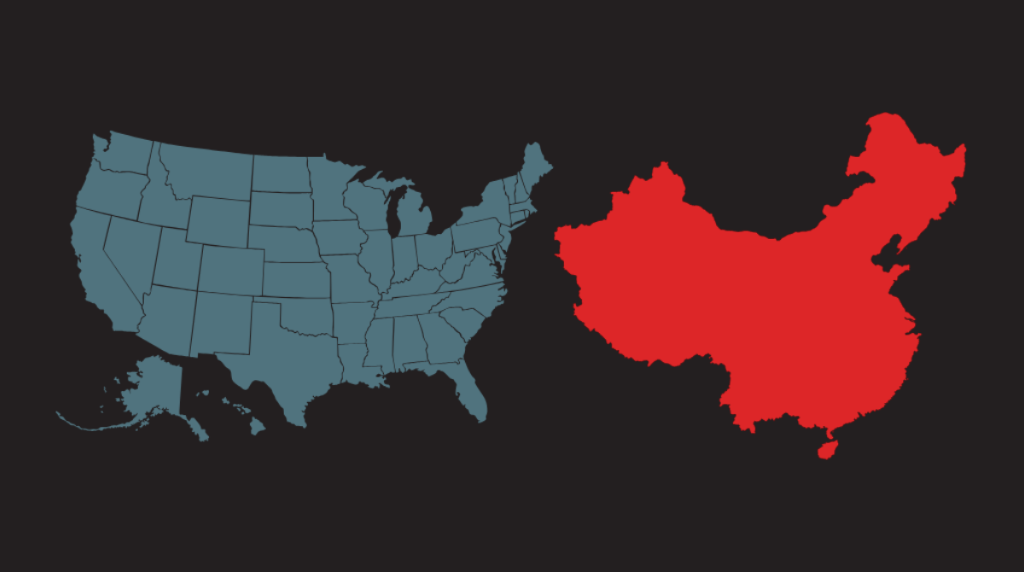China/US Trade War Causes Asian Gaming Company Shares to Dip
The trade war started by US President Donald Trump has spilled into the gaming industry.

Asian casino stocks dip amid tariff war.
Key Facts:
- Trump’s unprompted trade war is causing financial stress across the globe, including Asian markets
- Asian casino companies saw their shares fall as China, US exchange tariff hikes
- 12% one-day loss for Galaxy Entertainment Group, which operates casinos in Hong Kong
Tariffs are dominating the headlines in the early days of the second Trump administration, as the American President takes aim at nations he feels aren’t playing fair.
But, whether that tactic is partisan or not, the tariffs imposed by the US have led to more tariffs from China and elsewhere. The damage from those actions have impacted the value of gaming companies on markets in most corners of the world.
Escalating global economic tensions, intensified by President Trump’s latest round of tariff announcements, triggered swift reaction from China—casting a cloud of uncertainty over world markets.
Trump announced on Tuesday that China had failed to respond to a deadline that could have removed some American tariffs on Chinese goods. As a result, tariffs against some Chinese imports will soar to 104% in coming weeks.
The gaming sector has not been immune from the tariff panic, particularly companies with deep footprints in Macau and Singapore, which has been especially hard-hit due to the region’s reliance on Chinese tourism and gaming-linked revenue streams.
Galaxy Suffers 12% Dive in Share Price
Galaxy Entertainment Group, listed in Hong Kong, was among the biggest casualties, and it posted one of the steepest drops among Asia-based casino operators. Its shares plunged 12.4% to close at HK$26.40 (US$3.37) on April 7, falling sharply from HK$30.15 (US$3.85) earlier in the week.
Melco Resorts & Entertainment also faced steep losses, with its stock slipping 9.8% to US$4.80 from a previous US$5.32. Las Vegas Sands—the parent company of Sands China in Macau—was not immune, as its shares dipped 8.4% from US$36.41 to US$33.37.
Genting Singapore saw notable selling activity in Singapore, with its stock dropping 7.5% to S$0.6750 (US$0.51), down from S$0.7300 (US$0.55).
Casinos based in the US have suffered too, with some of them having interests in Asia. Gaming companies with major exposure to the Asian market also felt pressured. Wynn Resorts, which operates Wynn Macau, saw its shares decline 3.8% to US$70.09. Meanwhile, MGM Resorts International—linked to MGM China Holdings—closed 3.7% lower at US$26.86.
These sharp stock declines underscore the market’s growing apprehension over deteriorating US-China trade relations and highlight the fragility of the gaming industry in Asia’s premier casino hubs during periods of economic and political turbulence.
How Tariffs Impact Asian Casino Companies
Tariffs are taxes imposed by a government on imported goods, designed to make foreign products more expensive to encourage domestic consumption and protect local industries.
In the context of US-Asia relations, tariffs often play a strategic economic and political role, particularly in sectors like technology, manufacturing, and entertainment—including gaming companies that own and operate casinos.
When the United States imposes tariffs on goods imported from Asian countries such as China, Japan, or South Korea, it raises the cost of those imports.
For instance, a tariff on gaming equipment manufactured in Asia—like electronic slot machines, security systems, or casino furniture—makes these products more expensive for American casino operators to buy.
As a result, US-based companies may turn to domestic suppliers or seek to pass the added cost onto consumers. Conversely, Asian nations may retaliate with their own tariffs on US exports, which can affect the broader global operations of American gaming companies.
Take Las Vegas Sands and Wynn Resorts, two US-based giants with a significant presence in Asia, particularly in Macau and Singapore. These companies rely on equipment, architectural materials, and technology sourced from both American and Asian suppliers.
If the US government increases tariffs on Chinese-made gaming technology, it raises operating costs for casinos in Las Vegas and Macau alike. Since many casino components—such as gaming tables, chips, card shoes, and lighting systems—are manufactured in China for export, tariffs could deeply affect procurement budgets.
On the flip side, consider Genting Group, a Malaysian conglomerate that owns Resorts World properties in Asia and the United States. If the US imposes steep tariffs on imported gaming equipment from Asia, Genting’s US-based casinos (like Resorts World Las Vegas) might face higher costs due to reliance on Asian imports.
However, Genting could adapt by shifting supply chains or lobbying for exemptions, which sometimes happen in specific industries considered essential. Tariffs also influence broader strategic decisions, such as where to expand. A US gaming company looking to build a new casino in Asia may face barriers if host countries implement retaliatory tariffs or regulatory hurdles in response to American trade policies.
The 2018–2020 US-China trade war is a recent example: rising tariffs during this period created uncertainty for casino operators trying to invest in or import from China.
Trump’s 2025 tariffs are larger and broader than any in recent memory, threatening the economic stability of the US, and endangering the investments of people around the world.
Moreover, tariffs affect the construction phase of new resorts and casinos. Steel, glass, and high-tech surveillance equipment are often imported from Asia. US tariffs on these materials can escalate project budgets, delay completion, or cause companies to reconsider supplier relationships. This was evident during the construction of major resorts in Las Vegas, where tariff increases forced project managers to reevaluate procurement strategies.
Tariffs are a double-edged sword for gaming companies operating internationally. While intended to protect domestic interests, they can disrupt global supply chains and add layers of complexity to cross-border investment and operation.




